Introducing Bach
First Teaching Pieces by Bach
Pedagogically Compiled and Edited
Copyright 2007 by Isabel Otero Bowen and Ward Bowen
Introducing Bach is a piano literature collection designed to present students to their first works by the composer, while also exploring his illustrated biography. The intention of this publication is to aid both teacher and student through the difficult transition from method materials to repertoire. These pieces have been carefully selected so that they are accessible to students in an early stage of development, thus better preparing them for the study of Bach's major works, such as the suites, and preludes and fugues from The Well-Tempered Clavier.
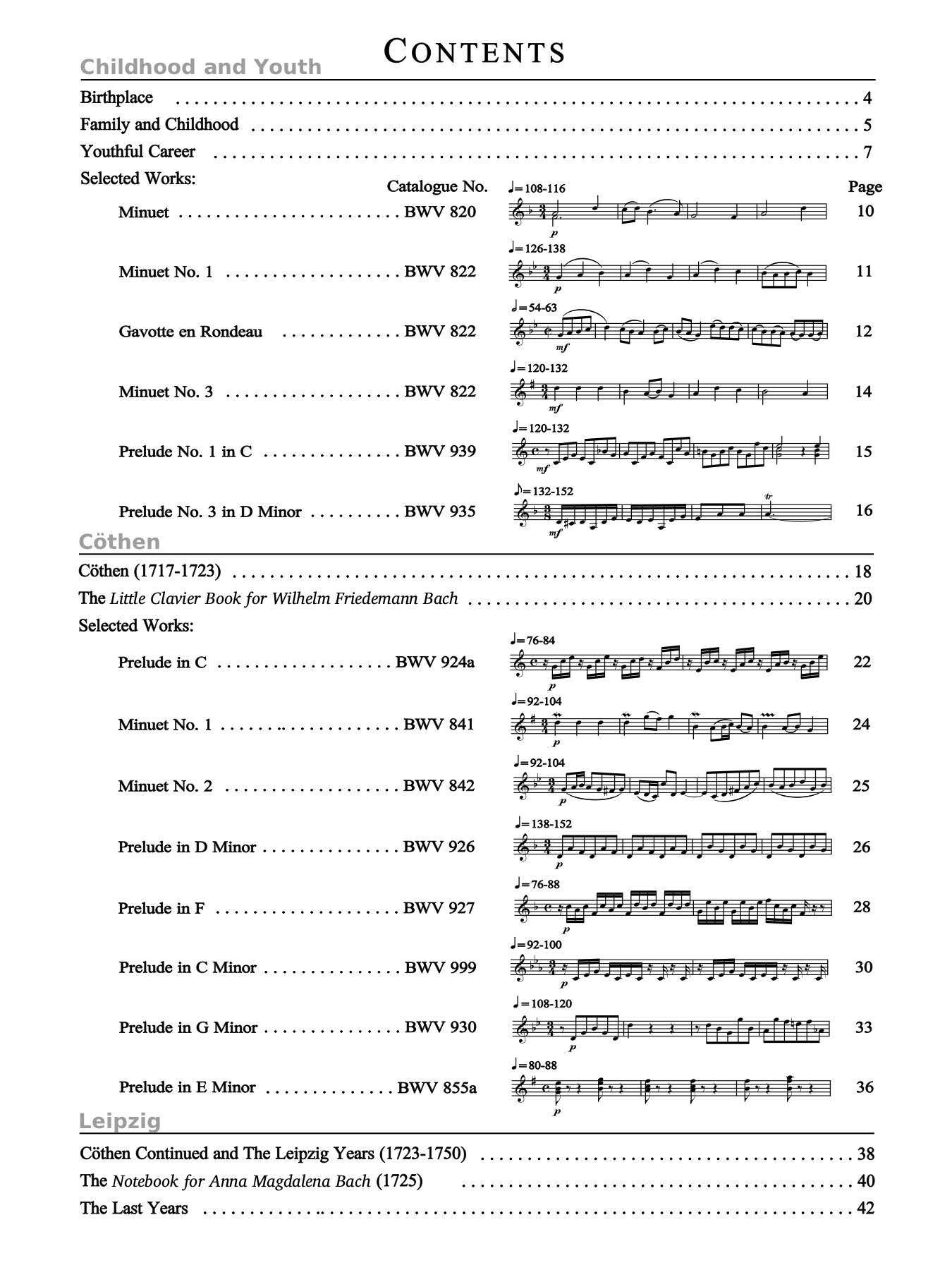
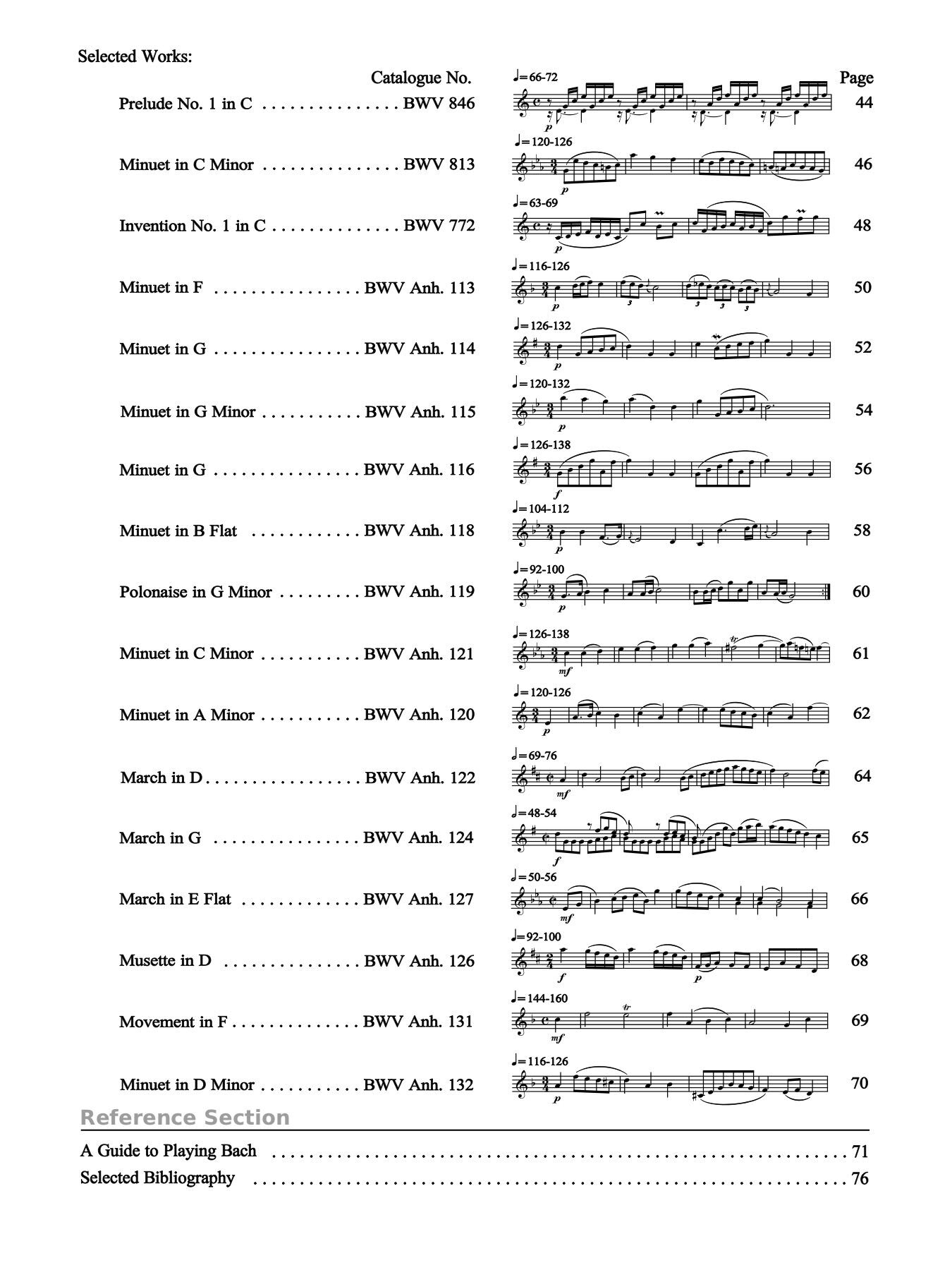
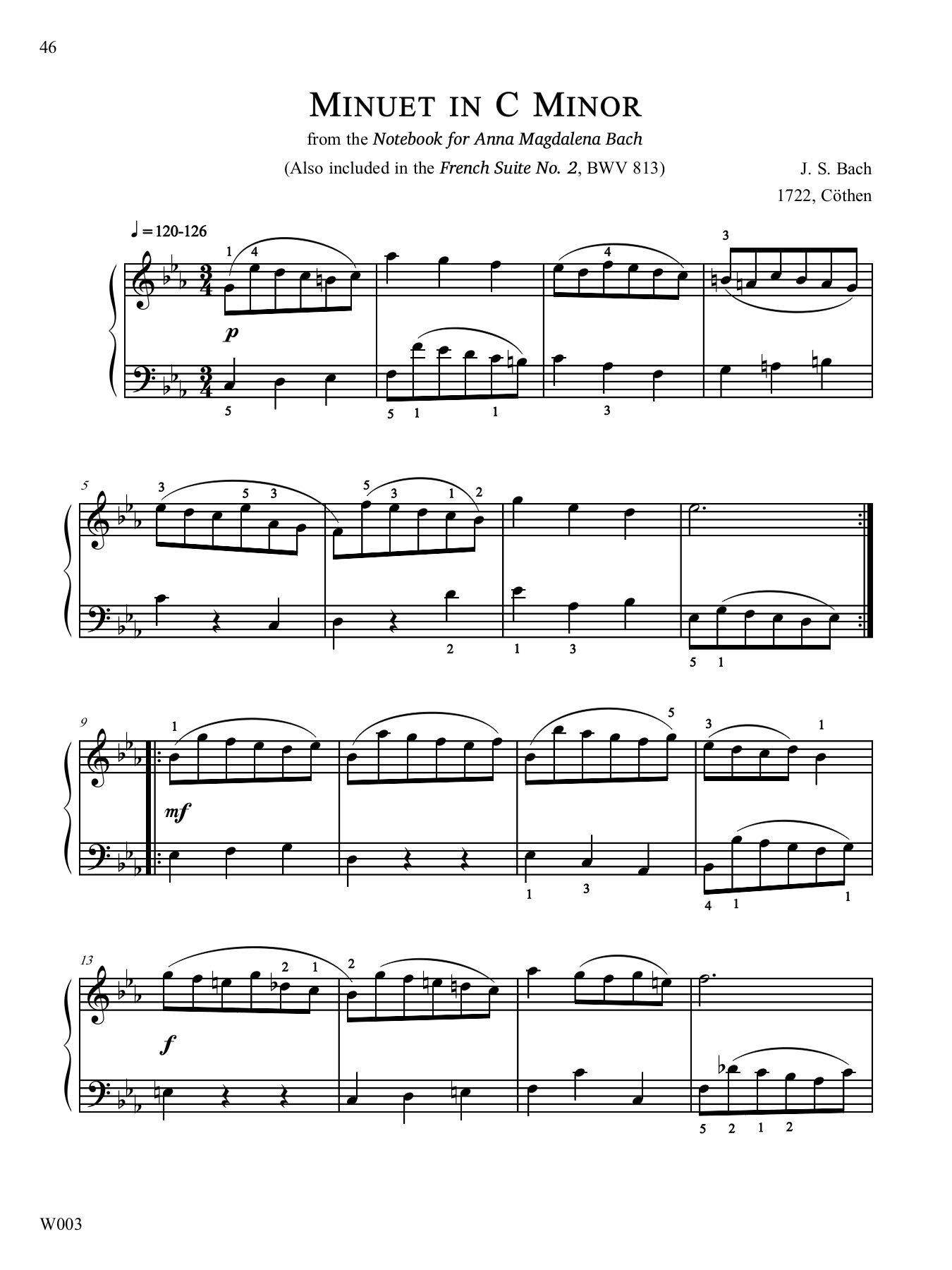
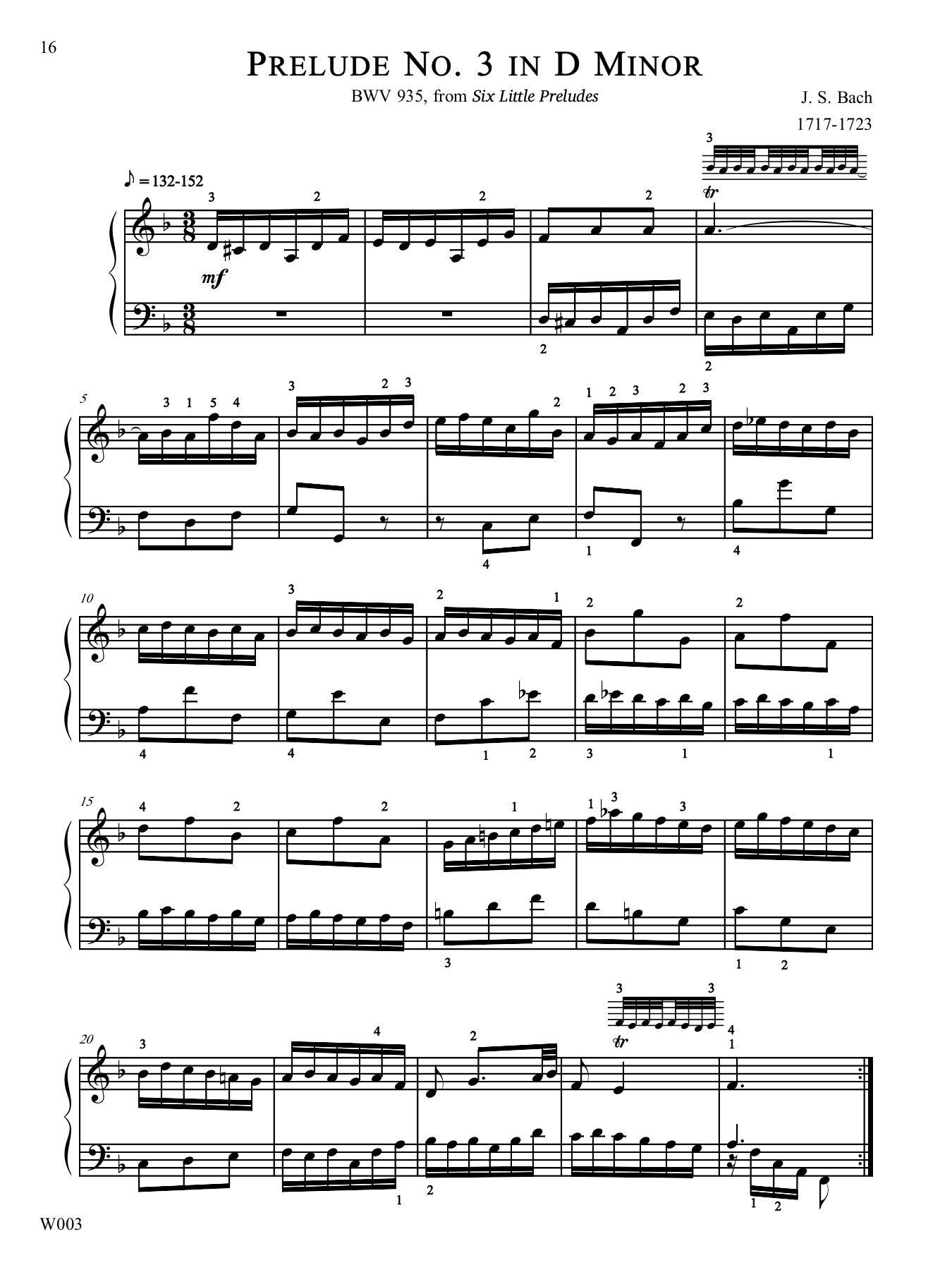
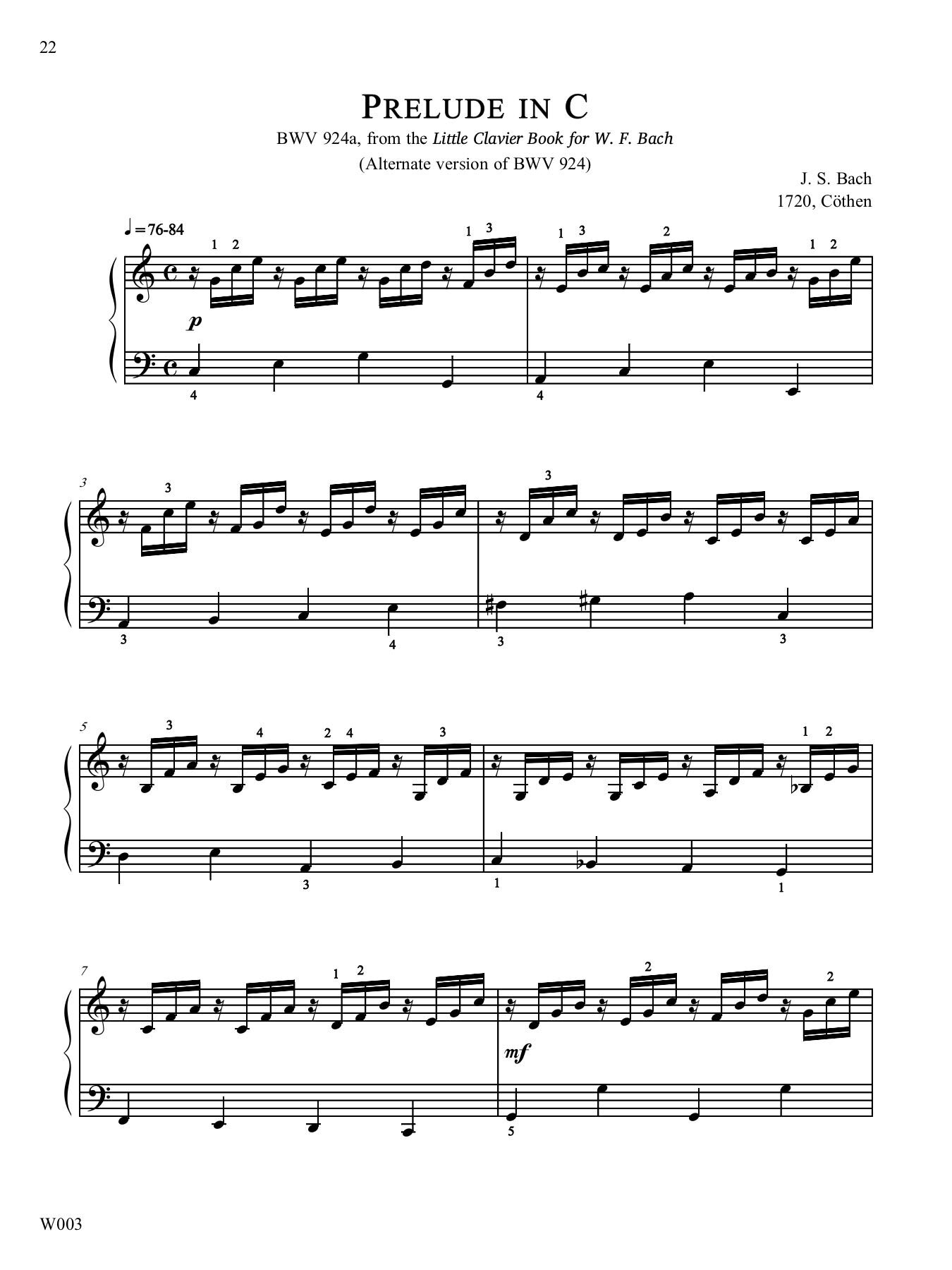
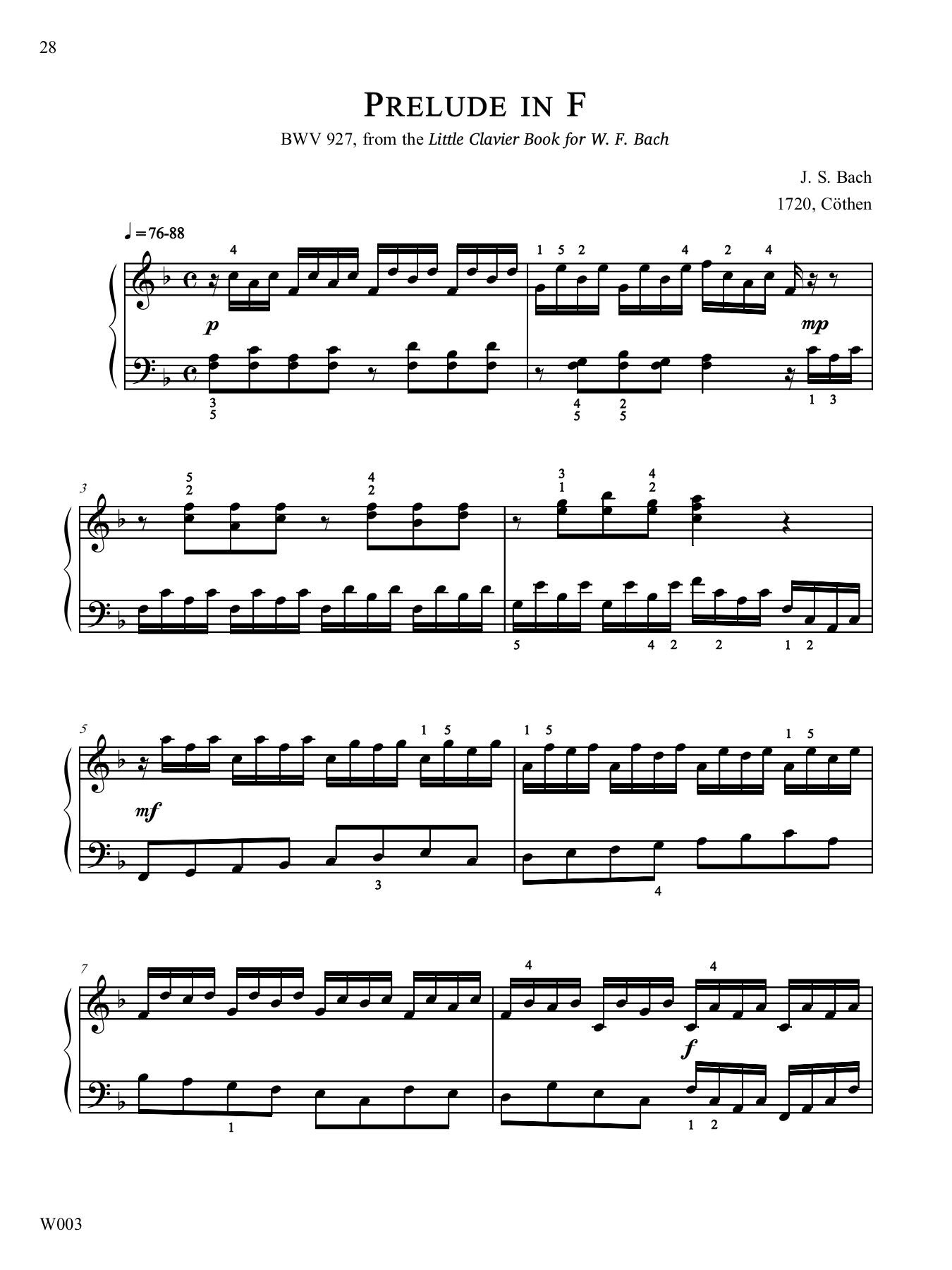
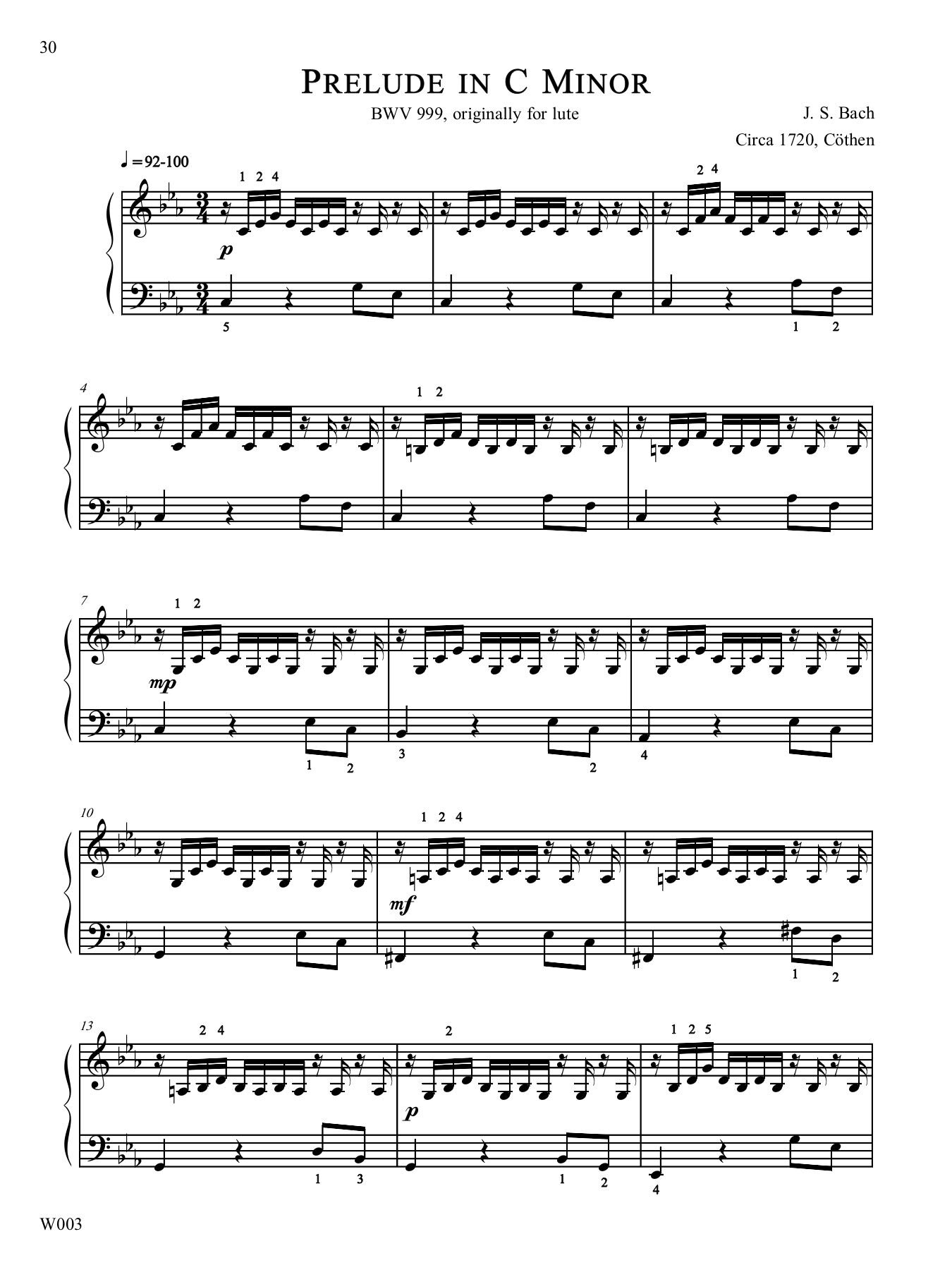
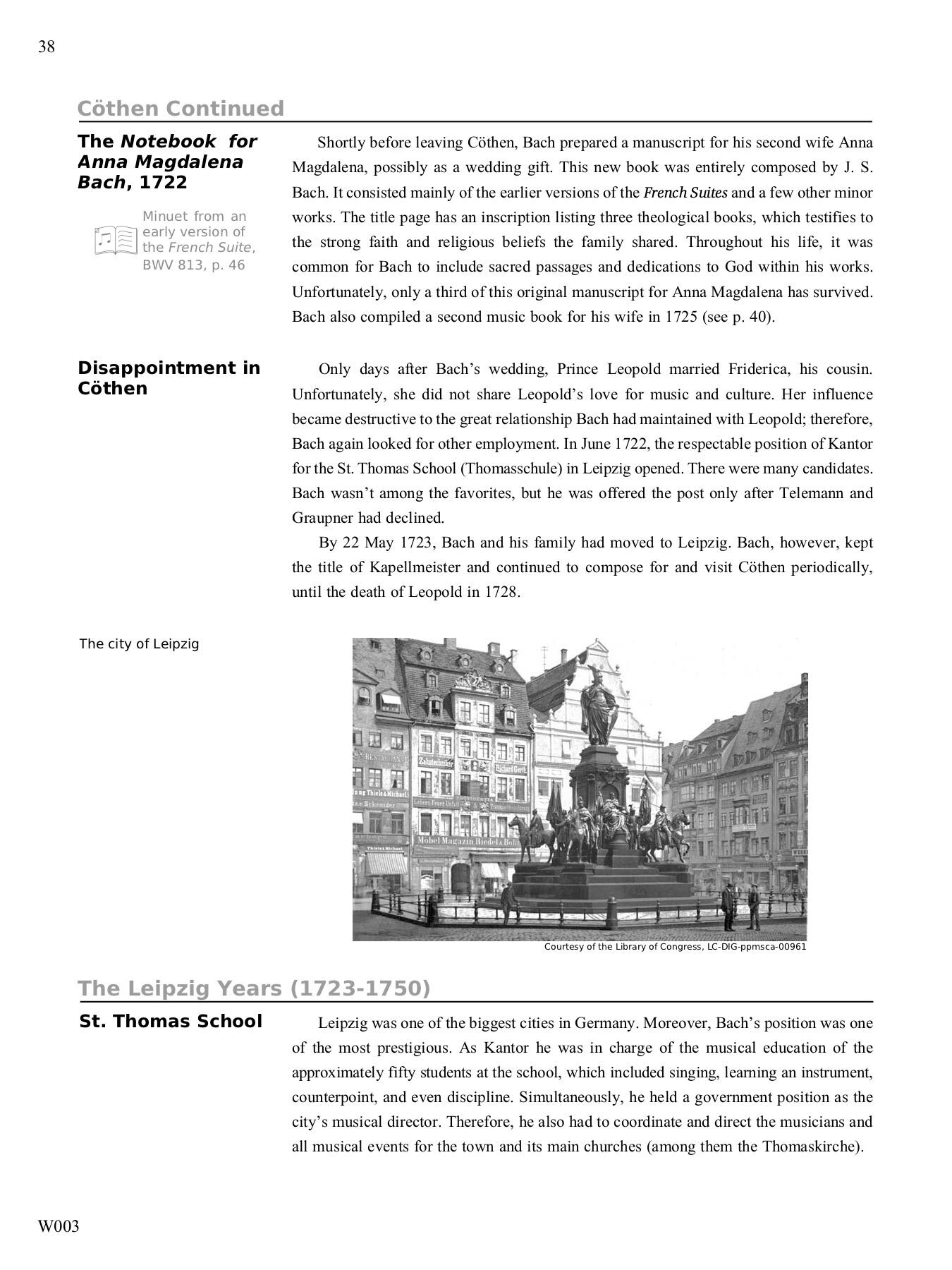
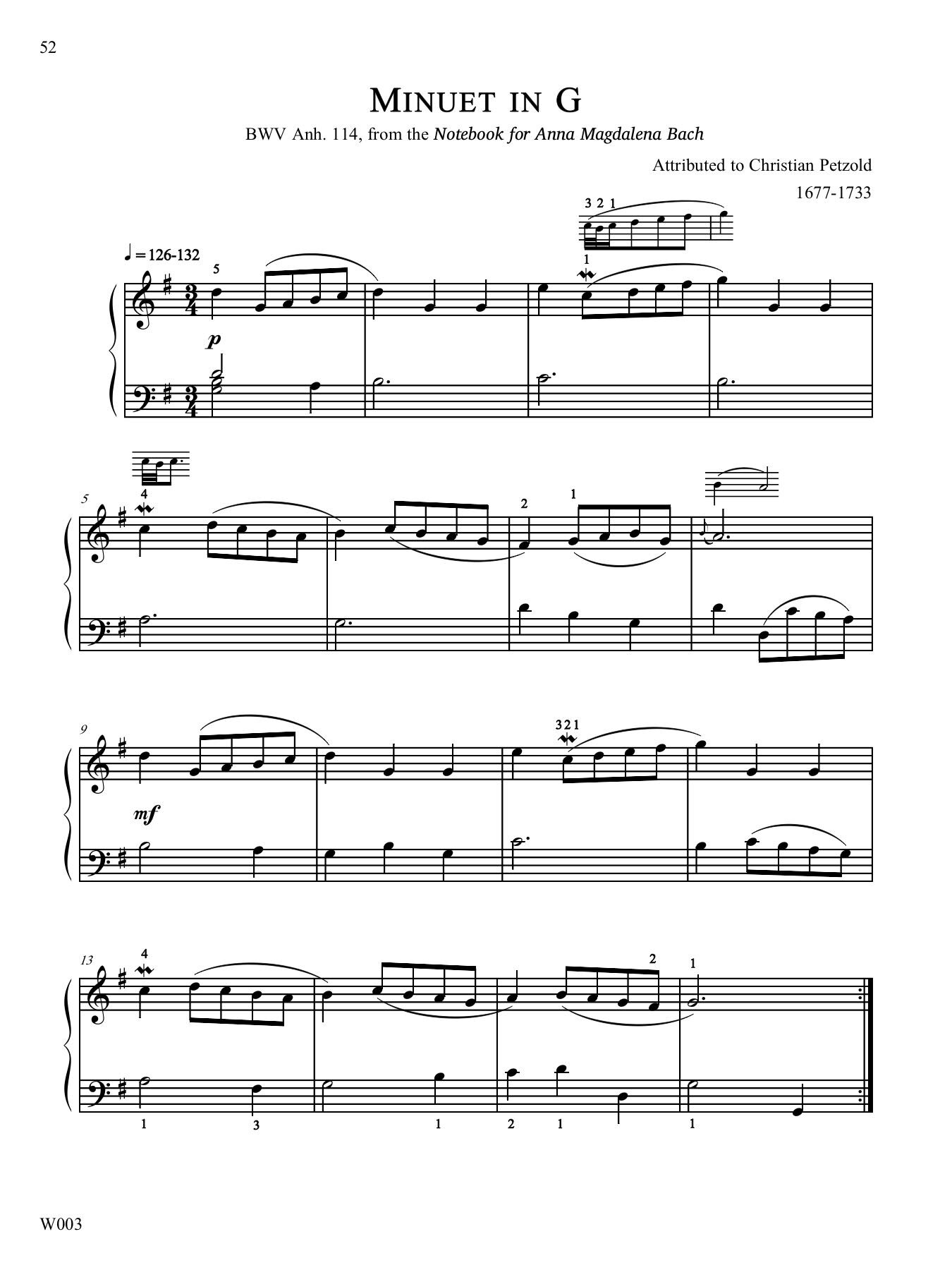
This collection has been arranged chronologically. By connecting piano literature with music history, the student will become aware of the composer's own struggles, interests, and anecdotes. This will allow the student to identify with the music in a uniquely personal way as opposed to studying just the literature alone. These compositions were selected based on their pedagogical value, compiled mainly from Bach's collections of teaching pieces: the Notebook for Anna Magdalena and the Little Clavier Book for Wilhelm Friedemann Bach, in addition to a few Little Preludes and other miscellaneous works. We have also included pieces by Petzold and Bach's children, because Bach himself selected them and used them for teaching. Moreover, they show us the compositional styles of his sons and of the composers of the time. The pieces in this edition were studied carefully and are based on Urtext scores for accuracy. In most of his original works, Bach did not indicate articulation markings, slurs, and dynamics. He was only specific regarding ornamentation.
Because of the educational purpose of this book, a few recommended slurs and basic dynamics have been added. Fingerings and metronome markings have also been added throughout. Careful effort has been made to remain respectful to the composer s original intentions. A Guide to Playing Bach has been included at the end of the book. Here a comprehensive yet straightforward explanation has been given to all stylistic and performance questions, such as articulation, ornamentation, and tempo. Realizations have been notated throughout the book every time an ornament appears for the first time in a piece. This is to facilitate learning and guide interpretation. Alternate resolutions and a table have also been included.
Contents:
16 Page Illustrated Biography
Minuet, BWV 820
Minuet No. 1, BWV 822
Gavotte en Rondeau, BWV 822
Minuet No. 3, BWV 822
Prelude No. 1 in C, BWV 939
Prelude No. 3 in D Minor, BWV 935
Prelude in C, BWV 924a
Minuet No. 1, BWV 841
Minuet No. 2, BWV 842
Prelude in D Minor, BWV 926
Prelude in F, BWV 927
Prelude in C Minor, BWV 999
Prelude in G Minor, BWV 930
Prelude in E Minor, BWV 855a
Prelude No. 1 in C, BWV 846
Minuet in C Minor, BWV 813
Invention No. 1 in C, BWV 772
Minuet in F, BWV Anh. 113
Minuet in G, BWV Anh. 114
Minuet in G Minor, BWV Anh. 115
Minuet in G, BWV Anh. 116
Minuet in B Flat, BWV Anh. 118
Polonaise in G Minor, BWV Anh. 119
Minuet in C Minor, BWV Anh. 121
Minuet in A Minor, BWV Anh. 120
March in D, BWV Anh. 122
March in G, BWV Anh. 124
March in E Flat, BWV Anh. 127
Musette in D, BWV Anh. 126
Movement in F, BWV Anh. 131
Minuet in D Minor, BWV Anh. 132
A Guide to Playing Bach
